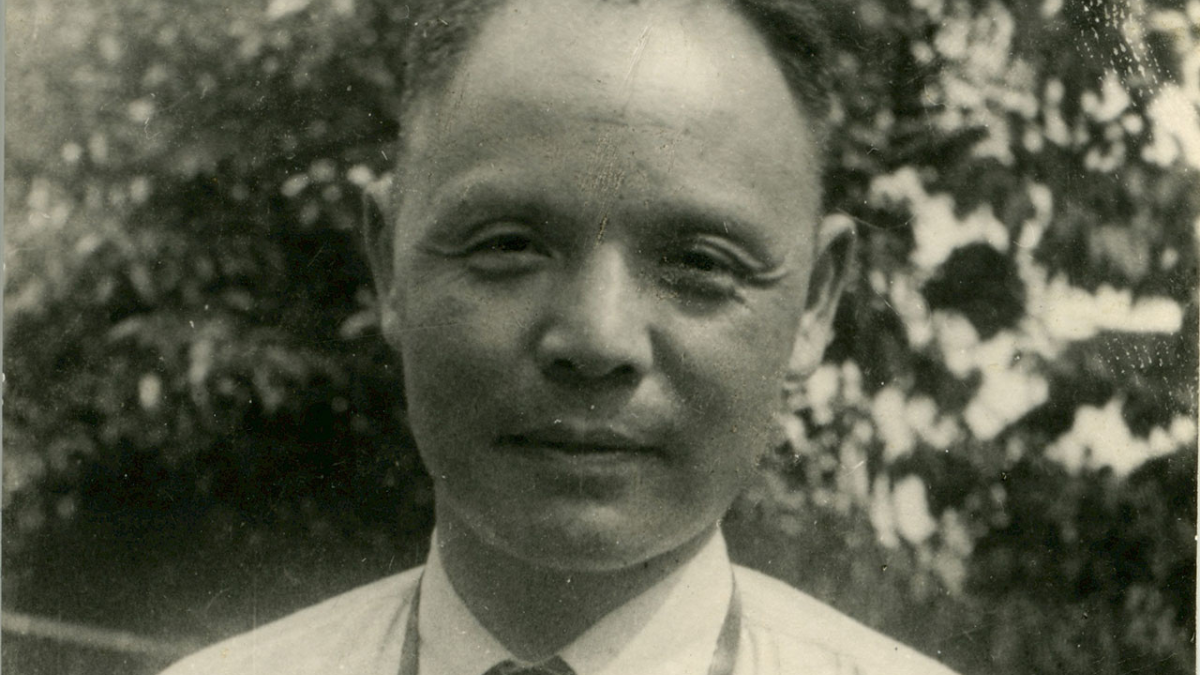

Ho Feng Shan: How God Used the Chinese-Born Diplomat During World War II
Orphaned and then educated by Christian missionaries, Feng Shan saved thousands of Jews in concentration camps by boldly issuing Chinese visas for escape.
07/26/23
John Stonestreet and Glenn Sunshine

Ho Feng Shan was born in Yiyang, Hunan province, in China. Orphaned at age seven, he was taken in and educated by Lutheran missionaries. A lifelong Lutheran, he eventually immigrated to San Francisco and became a founding member of the Chinese Lutheran Church there.
In 1935, after earning a doctorate from the University of Munich three years earlier, Ho joined the diplomatic corps of the Republic of China. Two years later, thanks in part to his fluency in both English and German, he was appointed First Secretary to the Chinese legation in Vienna. In 1938, when Austria disappeared into the Third Reich, all foreign embassies were downgraded to consulates. Ho was appointed Consul General in Vienna, answering to the ambassador in Berlin. As he would later recall,
“Since the annexation of Austria by Germany, the persecution of the Jews by Hitler’s ‘devils’ became increasingly fierce. There were American religious and charitable organizations which were urgently trying to save the Jews. I secretly kept in close contact with these organizations. I spared no effort in using any means possible. Innumerable Jews were thus saved.”
Among the “any means possible” at his disposal were visas. At that time, the Nazis permitted Jews to leave Austria, even from concentration camps, if they had a visa to another country. China’s Nationalist government had instructed Ho to be “liberal” with visas, so he began issuing them to Jewish families for travel to Shanghai. Shanghai was an open city, and no visa was required to go there. However, Ho used the ruse to help Jews escape Austria.
Keeping the secret was not easy. Ho and his family were at risk of the Nazis ignoring his diplomatic immunity if they decided he was too much trouble. On at least one occasion, Ho faced down an armed Gestapo officer to protect a Jewish family.
When the Chinese ambassador ordered Ho to stop giving Jews visas, Ho replied that the Foreign Ministry had told him to be liberal with visas. The ambassador could not figure out what Ho was getting out of the visas and sent an inspector to Vienna to investigate. Finding no evidence of wrongdoing, the inspector returned to Berlin and placed a negative report into Ho’s record for insubordination.
No one knows just how many visas Ho issued during this time. A conservative estimate is around 4,000. How many were used is also unknown. What is known is that Ho’s courage saved thousands of lives.
After the war, when the Communists won the Chinese civil war and the Nationalists withdrew to Taiwan, Ho remained loyal to the Nationalist cause. He served in numerous diplomatic posts until a subordinate, whom Ho had turned down for a promotion, accused him of misappropriating $300 of embassy funds. Though innocent, Ho was pushed out of his job and denied his pension despite 40 years of service.
Ho retired to San Francisco, where he dedicated himself to his church and to community service. When he died in September 1997, Ho’s daughter brought his ashes to China and buried them in his hometown of Yiyang. Ironically, the Communists government sent a wreath while the Nationalist government ignored his passing. Finally, in 2015, Taiwan recognized his work and posthumously awarded him the President’s Citation Award.
When asked why he worked so hard at such great personal risk to save Jews when other diplomats did not, he explained, “I thought it only natural to feel compassion and to want to help. From the standpoint of humanity, that is the way it should be.” Shaped especially by a character formed by his Christian faith and a Western liberal education rooted in Christianity, Ho was providentially prepared to save lives in Vienna even at great risk to himself and his family.
His life is an example of how, through history and across diverse eras, Christians courageously lived lives of restoration in incredibly difficult cultural moments. In his new book, 32 Christians Who Changed Their World, Colson Center Senior Fellow Dr. Glenn Sunshine tells the stories of faithful men and women, most of whom are unknown today, whose lives were used by God in extraordinary ways. To receive a copy of 32 Christians Who Changed Their World, give a gift of any amount this month to the Colson Center (please visit colsoncenter.org/July).
This Breakpoint was co-authored by Dr. Glenn Sunshine. If you’re a fan of Breakpoint, leave a review on your favorite podcast app. For more resources to live like a Christian in this cultural moment, go to breakpoint.org.















